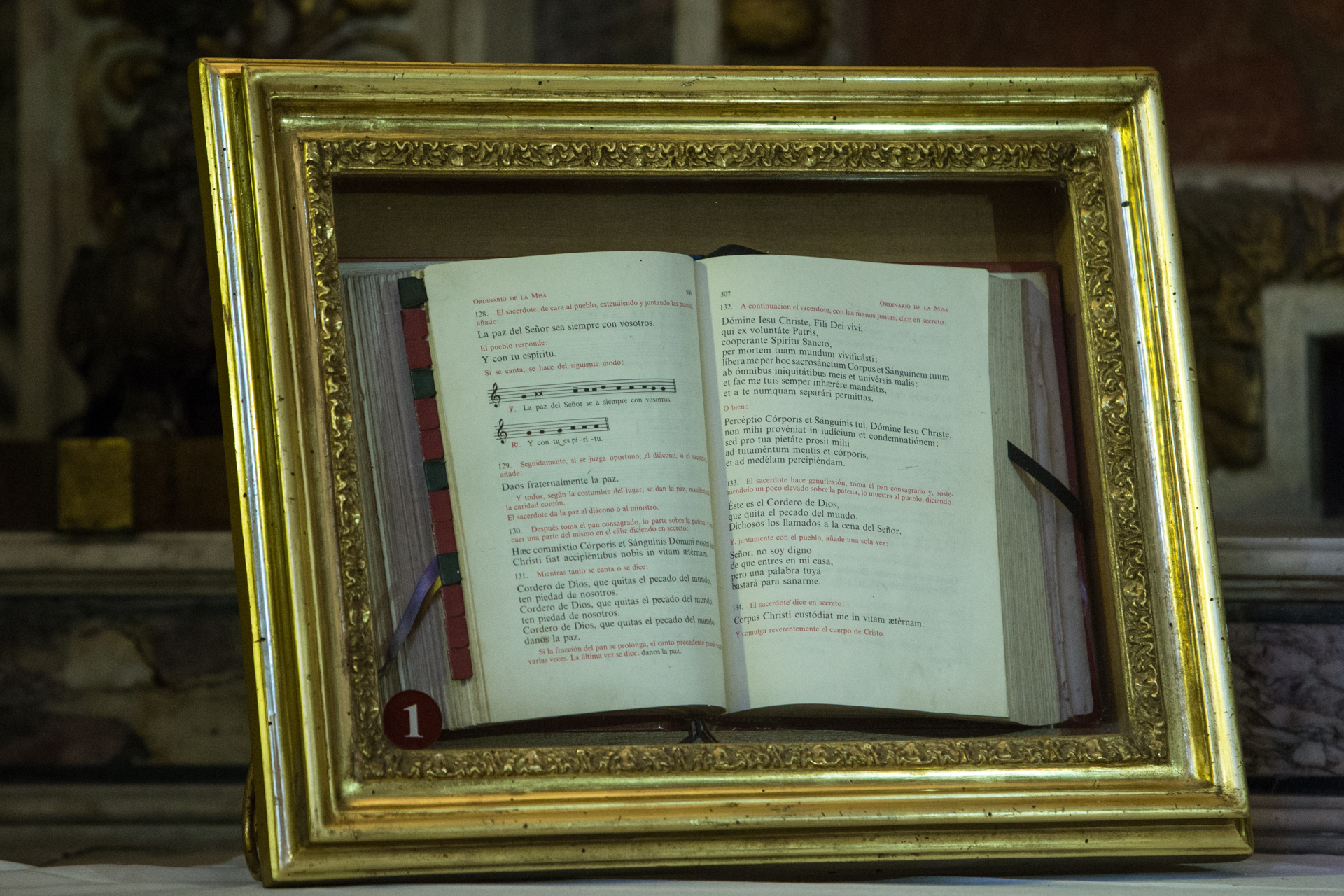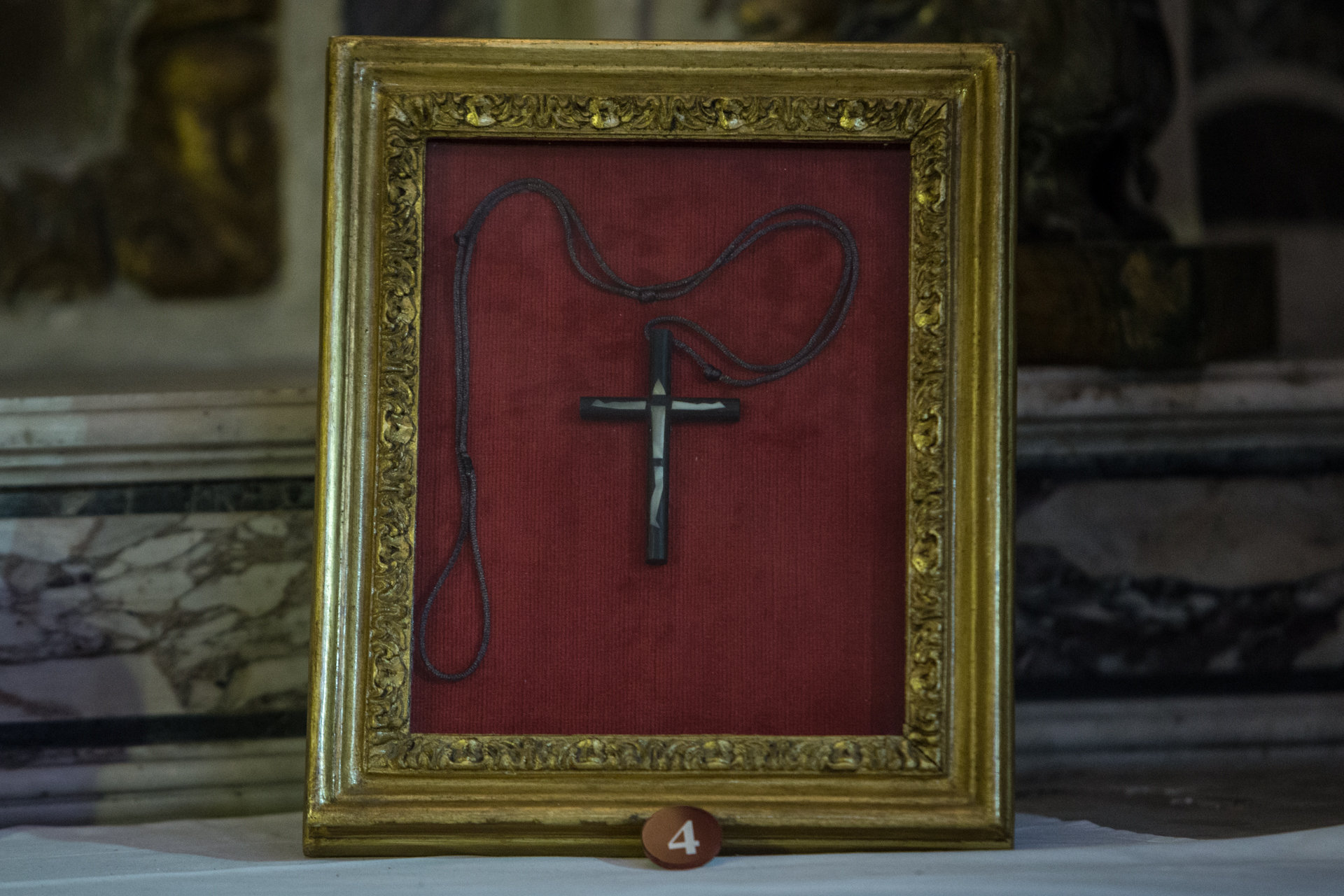Mgr. Oscar Arnulfo Romero was born on 15 August 1917 in Ciudad Barrios, a low mountain village in El Salvador. He entered the seminary in the city of San Miguel and in 1937 went to study in Rome where he was ordained a priest in 1942. In 1943 he returned to El Salvador. He was parish priest in the diocese of San Miguel until 1968, when he became secretary of the Salvadoran Episcopal Conference. In 1970 he was appointed auxiliary bishop in the archdiocese of San Salvador. In 1975 he was Bishop of Santiago de María. In 1977 he became Archbishop of San Salvador. He died in 1980, killed during a liturgical celebration by a death squad.
Mgr Oscar Arnulfo Romero was born on 15 August 1917 in Ciudad Barrios, a low mountain village in El Salvador. He entered the seminary in the city of San Miguel and in 1937 went to study in Rome where he was ordained a priest in 1942. In 1943 he returned to El Salvador. He was parish priest in the diocese of San Miguel until 1968, when he became secretary of the Salvadoran Episcopal Conference. In 1970 he was appointed auxiliary bishop in the archdiocese of San Salvador. In 1975 he was Bishop of Santiago de María. In 1977 he became Archbishop of San Salvador. He died in 1980, killed during a liturgical celebration by a death squad.
The last years of his life saw him rise to international fame for his courageous stances against violence and injustice in his country. Shy and awkward by nature, but a charismatic and authoritative personality, of Tridentine culture and tradition and at the same time very faithful to the Magisterium of the Church of his time, Archbishop Romero found himself, in spite of himself, by virtue of his deeply felt responsibility as archbishop and pastor, exercising a decisive public role in the crisis his nation was experiencing. At the end of the 1970s, El Salvador was sliding towards civil war, in the context of a Cold War confrontation between East and West that strongly involved Central America. Bishop Romero became in particular a ‘voz de los sin voz’, i.e. a defender of the poor and the humble ‘voiceless’ subjected to the spiral of violence unleashed by the military government and opposition guerrilla formations.
His position as a peace mediator, not without lucid and vibrant denunciations of the social injustice at the root of the very serious crisis, made his voice invisible to advocates of violence and forceful solutions. This testimony, always based on religious and spiritual motivations, led Bishop Romero to his death. On 24 March 1980, Monday of the last week of Lent. Bishop Romero was celebrating Mass in the little church of the hospital for cancer patients where he lived. He had just finished his homily. His last words had been Eucharistic: “May this immolated body and blood sacrificed for men also nourish us to give our body and blood to suffering and pain, like Christ”. A shot was heard coming from the entrance of the chapel. Bishop Romero fell before the altar. A few minutes later he died.
The Catholic Church opened the cause for beatification in 1997 and awarded him the title of servant of God: the postulator of the cause was Archbishop Vincenzo Paglia, current president of the Pontifical Council for the Family. His cause for canonisation, which had been at a standstill for years, was unblocked by the intervention of Pope Benedict XVI and then continued by Pope Francis, who wanted a swift conclusion. Pope Francis himself, with his own decree of 3 February 2015, recognised the martyrdom in odium fidei of Monsignor Romero, who will be elevated to the glory of the altars, as a Blessed, in a solemn celebration in San Salvador on 23 May 2015.
Share the post “Missal of Mgr Oscar Arnulfo Romero”

